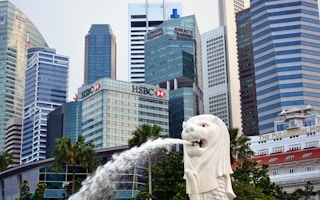Stock exchanges in Asia are now encouraging listed companies to disclose Environmental, Social and Governance (ESG) information.
Since 2007, Bursa Malaysia has required listed companies to disclose CSR activities and practices. In 2012, all state-owned enterprises in mainland China have been required to release CSR reports.
The Indonesia Bapepam requires that listed companies disclose specific ESG information.
In February 2015, the Taiwan Stock Exchange announced that specified listed companies will have to comply with mandatory CSR reporting annually from this year and adhere to Global Reporting Initiative (GRI) G4 principles.
To assist businesses in understanding ESG disclosure the stock exchanges of Hong Kong, Shenzhen, Shanghai, Singapore and Malaysia have issued guidelines on voluntary ESG disclosure.
On 17 July 2015, the Stock Exchange of Hong Kong (HKEx) published a consultation paper to seek views on proposed amendments to its ESG Reporting Guide. The consultation is open until 18 September 2015. More details next week.
Singapore is no exception. Since the Singapore Exchange (SGX), launched the Sustainability Reporting Guide (the Guide) for listed companies in 2011 some listed companies have taken sustainability reporting seriously and gained international recognition for their efforts.
Fast forward though to August 2014 and a study published by National University of Singapore (NUS) and the Global Compact Network Singapore found that only 160 of the 537 listed companies were communicating sustainability practices but only a handful of those (18) communicated a significant level of detail such as describing how material issues and key stakeholders were identified.
On October 2014, the then Chief Executive Officer of SGX, Mr Magnus Böcker, announced plans to increase sustainability reporting on a “comply or explain” basis.
SGX expects to implement the “comply or explain” requirement in Financial Year 2017. This is not a unique initiative but it is an important step especially for Singapore listed companies who compete regionally and globally.
Consultation exercise
After the announcement, a 1-year consultation exercise with stakeholders was started to gain a better understanding of company practices and readiness for improvement, as well as investor needs and expectations.
May 2015 – Consultation with listed companies in Singapore
June 2015 – Consultation with institutional investors and sustainability professionals
Upcoming – Consultation with public stakeholders
SGX has consulted with listed companies through surveys and focus groups. Melissa Brown, Partner at Daobridge Capital, who responded to the consultation with investors urged companies listed in Singapore “never to lose sight of the fact that processes that support good ESG reporting are the first line of defence against unwelcome market scrutiny, whether by regulators or by investors. Particularly when many Singapore listed companies compete globally, they must comply with diverse ESG rules in the markets where they operate.”
Andrew Buay, VP Group Corporate Social Responsibility and Talent Coach at Singtel commented that, “The plans by SGX regarding sustainability reporting is a step in the right direction. It is important to recognise that most US and European companies have evolved through this reporting process over many years to where they are today.”
Melissa Brown also cautioned those expecting big changes that “stock exchanges must be careful about finding the right time to make the transition from voluntary reporting to “comply or explain”. If the market operator or the regulators move too far ahead of market capacity, there is always a risk that listed companies explaining with a low level of information could become the market norm. Many stock exchanges choose to establish a gradual but transparent process of raising the bar on disclosure with a mandatory baseline of continuous disclosure of any material, price sensitive environment & social disclosure.
The final phase of the SGX consultation involves seeking views from all stakeholders, including the investing public, on the Listing Rules and reviewed Guide. SGX has yet to announce the consultation period.
What happens after “comply or explain” is implemented?
Producing a sustainability report is not “just another annual affair”. It is a process and an opportunity for companies to evaluate how their business model and operating practices are adapting or mitigating environmental and social issues or risks that could impact future business performance.
Singtel was the first telecommunications company in Singapore to publish a sustainability report, having started reporting in 2010. The Singtel report undergoes third party assurance although this is not currently mandated.
Andrew Buay described to us how Singtel “have found sustainability reporting beneficial as the rigour and approach that underpins the reporting process has enabled Singtel to establish a holistic view of their business performance, risks, opportunities and stakeholders interests relating to the long term sustainability of their business. Singtel’s stakeholders and investors are no longer just interested in financial performance.”
A sustainability report written in accordance with internationally recognised standards focuses on reporting ESG issues that matter the most to the business and its stakeholders.
What is clear is that the vast majority of companies listed in Singapore will have to disclose more ESG information than they currently are. Planning for 2017 should start now. Assessing current performance, building sustainability strategies and the process of building sustainability capacity in house takes time.
Producing the first sustainability report may seem like a large mountain to overcome. Andrew advises that “it is also important to recognise that the reporting standards globally are still evolving. So for other SGX-listed companies new to sustainability reporting, it could be a journey over a few years.”
At CSR Asia, we have partnered with many companies in Asia embarking on their sustainability journey and guided them through the process of producing a sustainability report. Connect with us to start your sustainability journey.

















